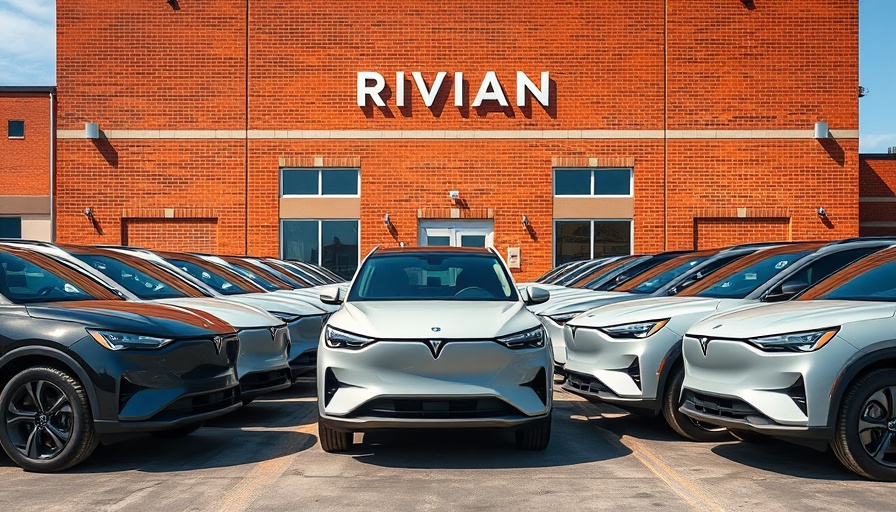
Rivian's Bold Move Amid Tighter EV Market
As Rivian Automotive breaks ground on its $5 billion plant in Georgia, the electric vehicle (EV) market faces significant challenges. Initiated amidst a backdrop of increased competition and potential declines in consumer incentives, Rivian's decision is both audacious and strategic. The company aims to ramp up production capacity to access the mass-market segment through its forthcoming R2 model, which is projected to start at a more accessible price point of $45,000.
Addressing Market Realities: Rivian's Strategy
Although Rivian has experienced its fair share of obstacles—signaled by disappointing sales forecasts and competition from industry giants like Tesla and General Motors—executives like CEO RJ Scaringe remain optimistic. "We didn't build this company based on federal tax incentives," Scaringe stated, highlighting Rivian's commitment to independent growth. The Georgia facility will ultimately allow for a production capacity of 200,000 vehicles per year, essential for Rivian's long-term viability.
Insights into Industry Trends and Consumer Behavior
Understanding consumer behavior in the EV market is critical as it shapes business strategy. For instance, despite an increase in overall vehicle sales, growth in the EV sector has plateaued at just 1.5%. This shift leads many to question if there is still demand for high-priced EVs like Rivian's existing models, or whether it's time for a shift to more economical options. Rivian's attempt to lower their entry price with the R2 may be a necessary strategy, echoing trends within the industry.
Preparing for a New Era in EV Manufacturing
The planned Georgia plant is likely to become a pivotal juncture for Rivian. As evident from Tesla's journey, achieving scale is essential for profitability, especially when the lowest price point for current offerings starts substantially above $70,000. Increasing capacity allows Rivian to spread its fixed costs over a larger production volume, making it more feasible to keep prices down.
Future of Rivian and Its Market Position
With Rivian poised to expand operations and begin production of smaller, more affordable models, the future looks cautiously optimistic. The company’s success in the coming years may very well hinge on how well it can adapt to consumer needs and navigate market dynamics.
Understanding these developments is crucial for small and medium business owners looking to innovate, as they provide a real-world example of adaptability and foresight in the face of adversity within an industry undergoing transformation.
 Add Row
Add Row  Add
Add 










Write A Comment